24+ Years Experience
Specialist Epoxy Resin Flooring

Enquire Today For A Free No Obligation Quote
Epoxy resin flooring is a highly durable and low-maintenance flooring option that provides excellent strength and longevity. It is a type of coating that is applied to concrete floors to create a smooth, seamless, and glossy surface. The installation process involves several steps, including surface preparation, application of the epoxy resin, and curing.
To begin with, the surface is prepared by cleaning and repairing any cracks or imperfections. Then, the epoxy resin is applied to the floor using a roller or brush, ensuring an even and consistent coverage. After the application, the resin needs to cure and dry completely, which typically takes several hours or even days depending on the specific product used. Finally, a finishing coat may be added to enhance the shine and durability of the flooring.
Epoxy resin flooring offers a multitude of benefits. It is highly durable and can withstand heavy foot traffic, making it suitable for both residential and commercial spaces. It is resistant to chemicals and stains, making it easy to clean and maintain. The customization options are another advantage, as epoxy resin flooring can be customized with different colors, patterns, and textures to match any design aesthetic.
Maintaining epoxy resin flooring is relatively simple. Regular cleaning with a gentle cleaner and a soft mop or cloth is usually sufficient to keep the surface clean. It is important to prevent scratches and damage by using felt pads on furniture legs and avoiding dragging heavy objects across the floor. Periodic recoating may be required to restore the shine and protective layer of the flooring.
Although epoxy resin flooring is known for its durability, some common issues may arise. Yellowing or discoloration can occur over time due to exposure to UV light. Cracking or chipping may happen if the surface is subjected to heavy impacts or if it was not properly prepared before the application.
To extend the lifespan of epoxy resin flooring, it is recommended to avoid direct sunlight by using curtains or blinds, and to regularly inspect the floor for any signs of damage. By following these tips and properly maintaining the flooring, you can ensure its durability and enjoy its benefits for many years to come.
Epoxy resin flooring is a durable and versatile flooring option commonly used in commercial, industrial, and residential settings. It consists of a mixture of epoxy resin and a hardening agent that, when applied to a properly prepared concrete surface, forms a tough and seamless surface. This flooring solution offers several benefits, including exceptional durability, resistance to chemicals and stains, and ease of maintenance. It is often chosen for areas that require high-performance flooring, such as warehouses, factories, hospitals, and garages. Epoxy resin flooring is also available in various colours and finishes, allowing for customisation to suit different aesthetic preferences.
When it comes to the installation of epoxy resin flooring, there are three key steps involved: surface preparation, application of the epoxy resin, and curing and finishing. In this section, we will explore each step in detail, discussing the techniques and considerations necessary to achieve a durable and visually appealing epoxy resin floor. Prepare to discover the secrets behind a flawless installation that will completely transform your space.
When it comes to the installation of epoxy resin flooring, there are three key steps involved: surface preparation, application of the epoxy resin, and curing and finishing. In this section, we will explore each step in detail, discussing the techniques and considerations necessary to achieve a durable and visually appealing epoxy resin floor. Prepare to discover the secrets behind a flawless installation that will completely transform your space.
Pro-tip: For improved adhesion, consider using a primer before applying the epoxy resin. This will create a strong bond between the substrate and the epoxy coating, resulting in a durable and long-lasting flooring solution.
Applying epoxy resin flooring involves a series of steps to achieve a smooth and durable finish. The process includes preparing the surface, priming the surface, mixing the epoxy resin, applying the epoxy resin, adding decorative elements (if desired), and finally, curing and finishing the flooring.
To begin, the surface must be thoroughly cleaned and any cracks or imperfections repaired. This ensures a clean and even base for the epoxy resin. Once the surface is prepared, a primer is applied to promote adhesion between the concrete and the epoxy resin.
Next, the epoxy resin and hardener are mixed according to the manufacturer’s instructions. It is important to follow these instructions carefully to ensure the proper ratio of resin to hardener. Once the mixture is prepared, it is applied to the floor using a roller or squeegee. This ensures an even and consistent application of the epoxy resin.
If desired, decorative flakes or colours can be added to the epoxy resin to create a unique design. This allows for customization options, making the flooring visually appealing. After applying the epoxy resin, it is left to cure for the recommended time. This curing process allows the resin to harden and bond with the surface, providing durability and longevity.
To further protect the epoxy resin flooring, a topcoat can be applied. This adds an extra layer of protection and enhances the overall finish. Once the epoxy resin is fully cured and the topcoat is applied, the flooring is complete.
By following these steps, you can achieve a professional-looking epoxy resin flooring that is visually appealing, durable, and long-lasting.
Curing and finishing are crucial steps in the installation of epoxy resin flooring.
Curing and finishing are crucial steps in the installation of epoxy resin flooring.
Are you searching for a flooring option that offers strength, style, and easy maintenance? If so, you’ve come to the right place! In this section, we will explore the benefits of epoxy resin flooring. We will discuss its remarkable durability and longevity, as well as its resistance to chemicals and stains. Additionally, we will delve into the various customization options available, allowing you to create a flooring solution that perfectly suits your style. And the best part? With easy maintenance, you can spend less time cleaning and more time enjoying your beautiful floors!
Durability and longevity are important considerations when choosing epoxy resin flooring. This type of flooring has a long lifespan, making it a worthwhile investment for both residential and commercial spaces. There are several reasons why epoxy resin flooring is known for its durability and longevity:
To extend the lifespan of epoxy resin flooring, consider implementing the following suggestions:
Epoxy resin flooring provides excellent chemical and stain resistance, making it a popular option for various applications. Here are some important points to consider about its chemical and stain resistance:
These qualities make epoxy resin flooring an ideal choice for industries and spaces that require a high level of chemical and stain resistance.
When it comes to epoxy resin flooring, there are various customization options available to suit different preferences and needs. Here are a few examples:
| 1 | Colour | Choose from a wide range of colours to match your space or create a specific aesthetic. |
| 2 | Patterns | Create unique patterns or designs using different techniques such as marbling, metallic, or geometric patterns. |
| 3 | Textures | Add texture to the floor, such as a non-slip surface or a glossy finish for a smooth and sleek look. |
| 4 | Logos or Branding | Embed logos or branding elements into the floor for a personalised touch or to promote your business. |
These customization options allow you to create a flooring solution that not only meets your functional requirements but also reflects your personal style or brand identity.
Epoxy resin flooring is renowned for its easy maintenance, making it a popular choice for both commercial and residential spaces. To ensure that your epoxy resin floor remains in optimal condition, follow these simple steps:
Pro-tip: To maintain the glossy appearance of your epoxy resin floor, refrain from using abrasive cleaners or scrub brushes, as they may cause damage. Instead, opt for gentle cleaning methods to ensure long-lasting beauty.
When it comes to epoxy resin flooring, there are several types that provide different benefits and applications. This section will discuss the different types of epoxy resin flooring available. From self-levelling epoxy floors to decorative epoxy floors, each sub-section will explain the distinct characteristics and uses of these flooring systems. Get ready to delve into the world of epoxy resin flooring versatility like never before!
Self-leveling epoxy floors provide a seamless, smooth, and glossy finish that enhances the appearance of any space. Here are some important points about self-leveling epoxy floors:
Self-leveling epoxy floors are a popular choice due to their easy installation, durability, and aesthetic appeal.
Self-levelling epoxy floors provide a seamless, smooth and glossy finish that enhances the appearance of any space. Here are some important points about self-levelling epoxy floors:
Self-levelling epoxy floors are a popular choice due to their easy installation, durability and aesthetic appeal.
Epoxy Flake Floors are a popular type of epoxy resin flooring that is well-known for its decorative flakes. Here are some important points to consider about:
With their aesthetic appeal, durability, and easy maintenance, Epoxy Flake Floors are an excellent choice for both residential and commercial spaces.
Epoxy mortar floors are a type of epoxy resin flooring that offer exceptional durability and resistance to heavy foot traffic and mechanical stress. These floors are commonly used in industrial settings, automotive garages, warehouses, and commercial kitchens where high strength and chemical resistance are required. Here are some key characteristics and benefits of epoxy mortar floors:
| Superior Strength: | Epoxy mortar floors are highly resilient and can withstand the weight of heavy machinery and equipment without cracking or chipping. |
| Chemical Resistance: | These floors are highly resistant to chemicals, oils, and solvents, making them ideal for areas where spills are common. |
| Seamless Surface: | Epoxy mortar floors provide a seamless and smooth surface that is easy to clean and maintain. |
| Improved Safety: | The texture of epoxy mortar floors can be customized to provide slip resistance, enhancing safety in the workplace. |
| Longevity: | With proper installation and maintenance, epoxy mortar floors can last for many years, providing a cost-effective flooring solution. |
Epoxy mortar floors are a type of epoxy resin flooring that offer exceptional durability and resistance to heavy foot traffic and mechanical stress. These floors are commonly used in industrial settings, automotive garages, warehouses, and commercial kitchens where high strength and chemical resistance are required. Here are some key characteristics and benefits of epoxy mortar floors:
| Superior Strength: | Epoxy mortar floors are highly resilient and can withstand the weight of heavy machinery and equipment without cracking or chipping. |
| Chemical Resistance: | These floors are highly resistant to chemicals, oils, and solvents, making them ideal for areas where spills are common. |
| Seamless Surface: | Epoxy mortar floors provide a seamless and smooth surface that is easy to clean and maintain. |
| Improved Safety: | The texture of epoxy mortar floors can be customized to provide slip resistance, enhancing safety in the workplace. |
| Longevity: | With proper installation and maintenance, epoxy mortar floors can last for many years, providing a cost-effective flooring solution. |
Antistatic epoxy floors are a specialised type of epoxy resin flooring that is designed to prevent the build-up of static electricity. They offer several key features and benefits, including providing a safe work environment by dissipating static electricity and protecting sensitive electronic equipment from electrostatic damage. Antistatic epoxy floors are commonly used in industries such as electronics manufacturing, data centres, laboratories, and cleanrooms. They are known for their excellent chemical resistance, durability, and ease of cleaning and maintenance. Additionally, these floors can be customised with various colours, patterns, and textures. They provide a seamless and smooth surface.
The need for antistatic flooring arose with the increasing use of electronic devices and the realisation of the damaging effects of static electricity on them. As technology advanced, industries began adopting antistatic epoxy floors to ensure the safety and longevity of their equipment.
Decorative epoxy floors are a popular choice for residential and commercial spaces due to their versatility and aesthetic appeal. They offer a wide range of customization options, allowing you to create unique and eye-catching designs. Here are a few key features of decorative epoxy floors:
Whether you want a bold and vibrant design or a subtle and sophisticated look, decorative epoxy floors offer endless possibilities to enhance the appearance of your space.
Maintaining epoxy resin flooring is important to ensure its longevity and aesthetics. This guide will provide practical tips on how to keep your epoxy flooring in excellent condition. We will cover regular cleaning methods, preventing scratches and damages, and the significance of periodic recoating to maintain the durability and preserve the glossy finish of your epoxy resin flooring. Prepare to discover the secrets of maintaining a stunning epoxy floor!
Regular cleaning is crucial for maintaining the durability and appearance of epoxy resin flooring. To ensure the best results, follow these important steps:
It’s worth noting that regular cleaning not only keeps the floor looking great but also helps prevent the buildup of dirt and stains, which extends the lifespan of the epoxy resin flooring.
Preventing scratches and damage is essential for maintaining the integrity and appearance of epoxy resin flooring. To help protect your flooring investment, here are some tips:
| 1. Use protective pads or sliders on furniture legs to prevent scratching when moving objects. |
| 2. Avoid dragging heavy objects across the floor; instead, use a dolly or lift to transport them. |
| 3. Place doormats at entryways to trap dirt and debris that could scratch the surface. |
| 4. Regularly sweep or vacuum the floor to remove abrasive particles that could cause scratches. |
| 5. Wipe up spills immediately to prevent staining or etching. |
| 6. Use soft-bristle brooms or mops to clean the floor, avoiding abrasive materials. |
| 7. Avoid using harsh chemicals or cleaners that could damage the epoxy coating. |
By following these preventative measures, you can prolong the lifespan of your epoxy resin flooring and keep it looking pristine for years to come.
Periodic recoating is necessary for the upkeep of epoxy resin flooring. The following steps are involved in the process:
1. Assess the condition: Inspect the flooring for any indications of wear, scratches, or dullness that suggest the need for recoating.
2. Prepare the surface: Thoroughly clean the flooring to eliminate any dirt, dust, or debris. Repair any damaged areas.
3. Etching or sanding: To improve adhesion, etch or lightly sand the surface of the existing epoxy coating.
4. Apply the new coat: Follow the manufacturer’s instructions to mix and evenly apply the fresh epoxy coating over the floor.
5. Allow curing: Give the newly applied epoxy coating sufficient time to cure and harden before allowing foot traffic or heavy use.
By periodically recoating the epoxy resin flooring, you can extend its lifespan, enhance its appearance, and maintain its durability.
When it comes to epoxy resin flooring, there may be some challenges to overcome. This section explores common issues and provides troubleshooting tips. From yellowing or discoloration to cracks or chips, we have the solutions you need. With this guide, you will have the knowledge to confidently maintain your epoxy resin flooring.
Yellowing or discolouration of epoxy resin flooring can occur due to various factors. Here are some common causes and solutions to address this issue:
By understanding the causes and implementing preventive measures, you can maintain the aesthetic appeal and longevity of your epoxy resin flooring, free from yellowing or discolouration.
Cracking or chipping is a common issue that can occur with epoxy resin flooring. Here are some possible causes and solutions to prevent and address this problem:
Pro-tip: Regularly inspect your epoxy resin flooring for any signs of damage, such as cracks or chips, and promptly address them to prevent further deterioration.
To effectively extend the lifespan of epoxy resin flooring, it is important to follow these helpful tips:
A1: Epoxy flooring offers durability, versatility, and a strong finish, making it a popular design choice for both residential and industrial spaces. It is resistant to wear and tear, and it can be easily maintained with regular cleaning.
A2: The cost of epoxy flooring installation can vary widely depending on factors such as the size of the area, the type of epoxy floor chosen, and whether professionals are hired for the installation. It is important to assess the financial investment involved before making a decision.
A3: The installation process for epoxy flooring typically involves assessing the condition of the existing floor, preparing the surface, applying the epoxy mixture, and allowing it to cure. Understanding these steps can be beneficial for a successful installation.
A4: To clean and maintain epoxy flooring, it is recommended to regularly sweep or vacuum the floor, use the right cleaners such as mild soap and water solution or pH-neutral cleaners, remove stains immediately, use mats and rugs in high-traffic areas, regularly seal the floor, and promptly repair any damaged areas.
A5: No, abrasive cleaners should be avoided as they can scratch and damage the epoxy floor, leading to a dull appearance. It is important to use gentle cleaning methods to preserve the surface of the flooring.
A6: Epoxy flooring is commonly seen in industrial facilities, but it is also being used in various other spaces such as residential garages, retail spaces, and healthcare facilities. Its versatility makes it suitable for different applications.
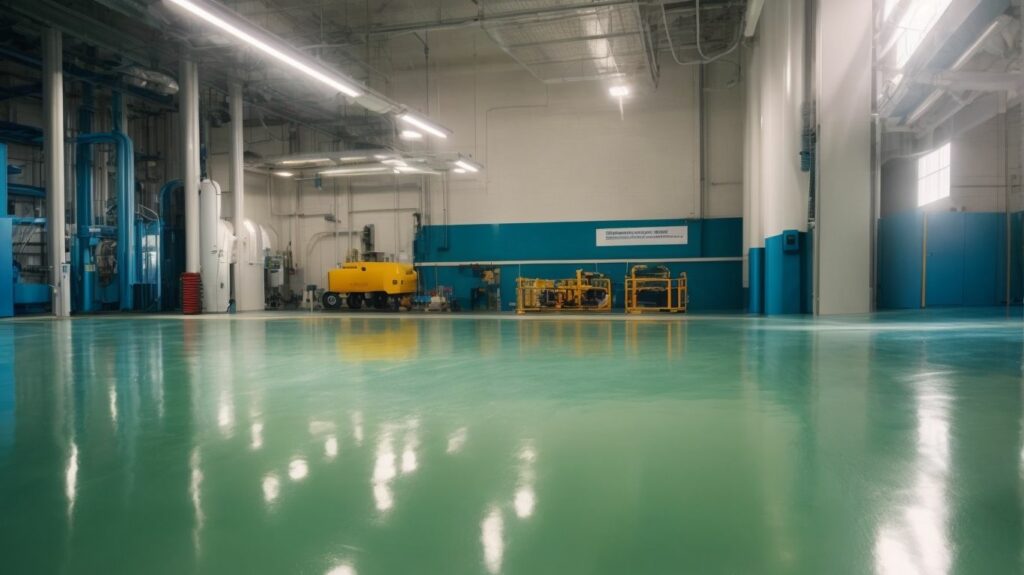
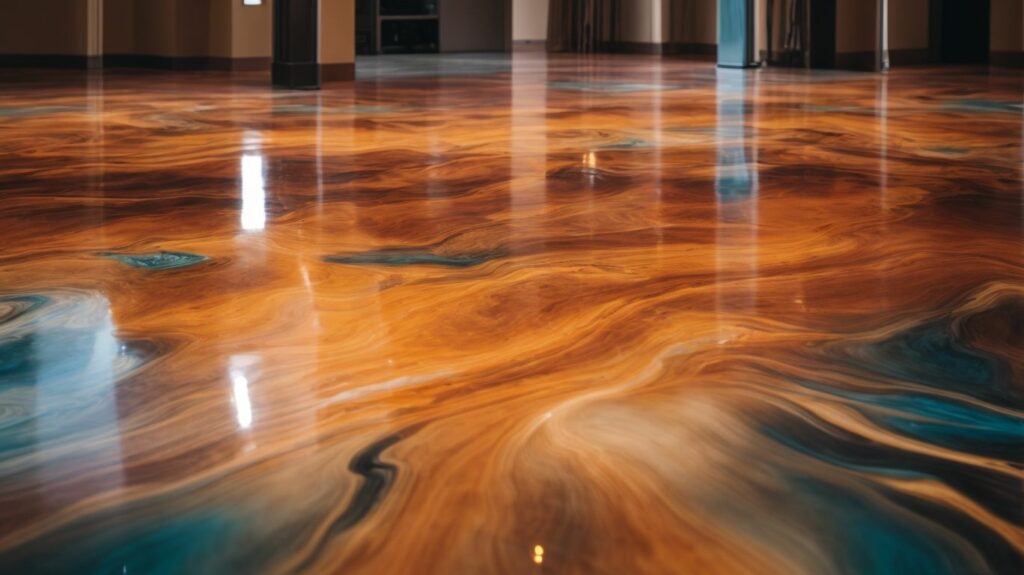
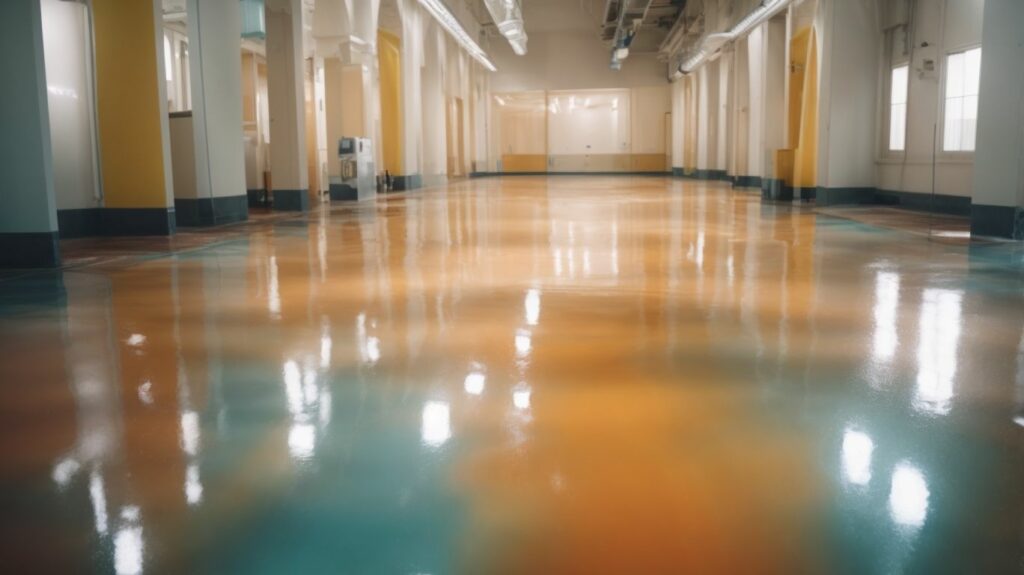


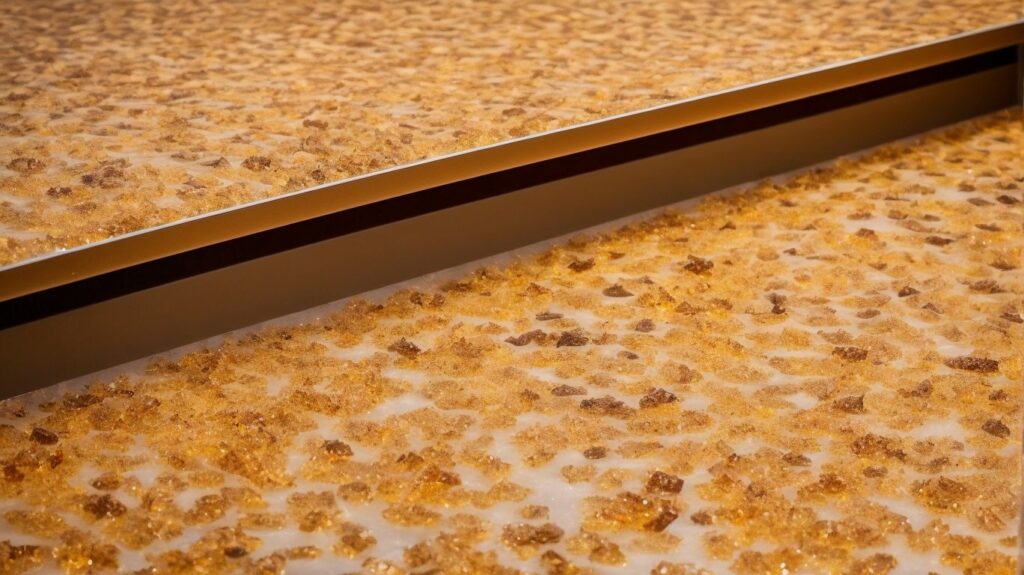
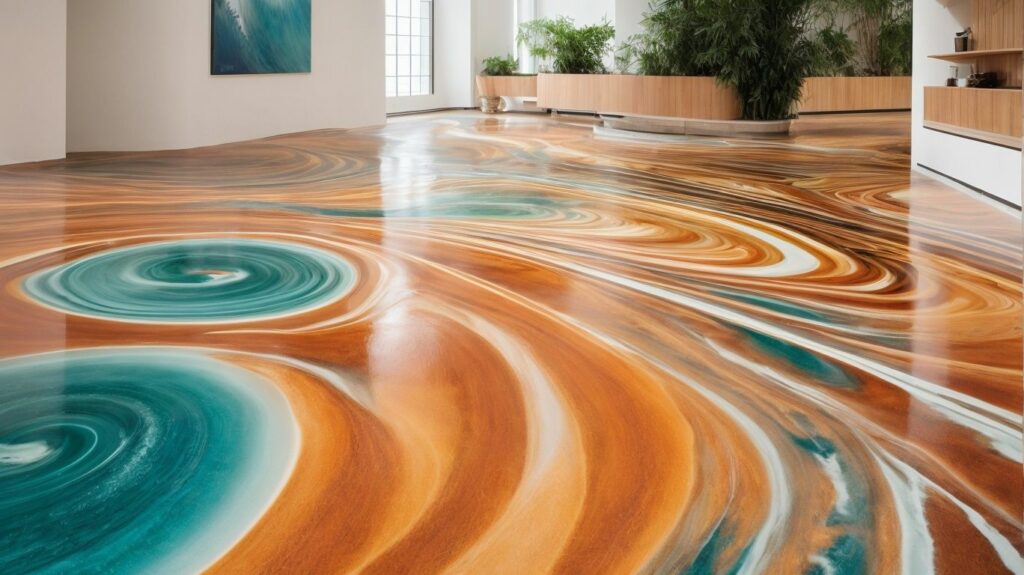
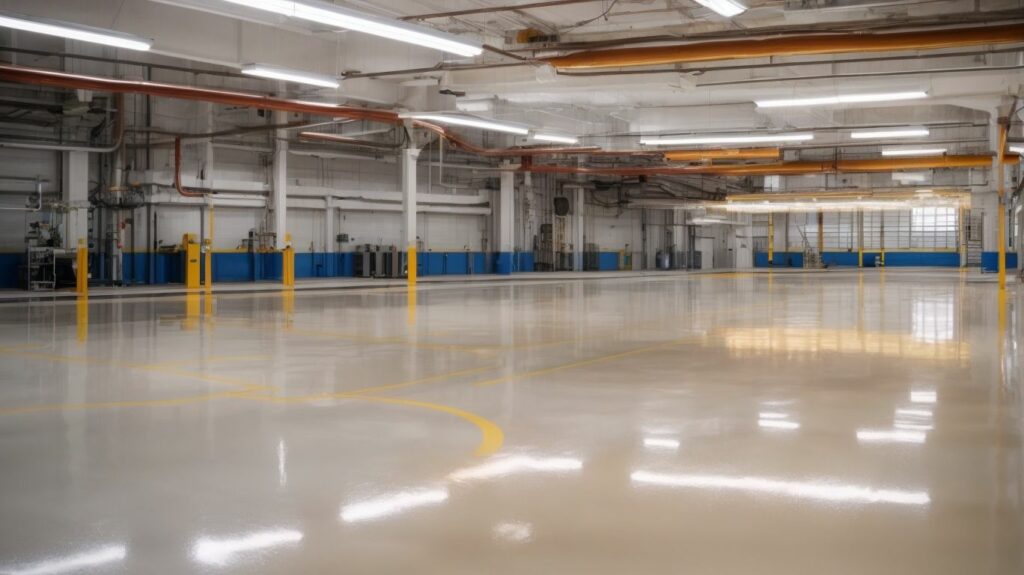
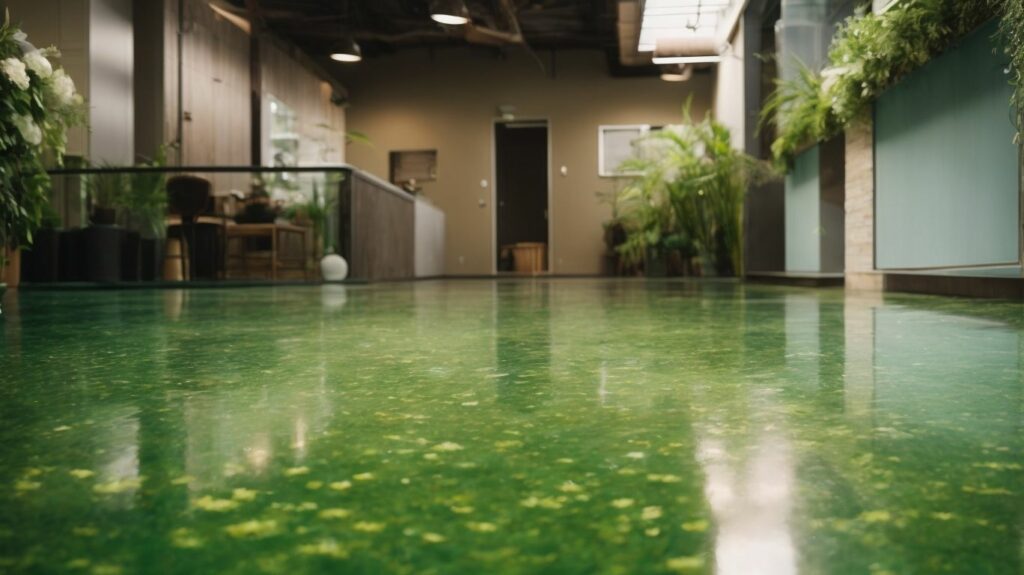

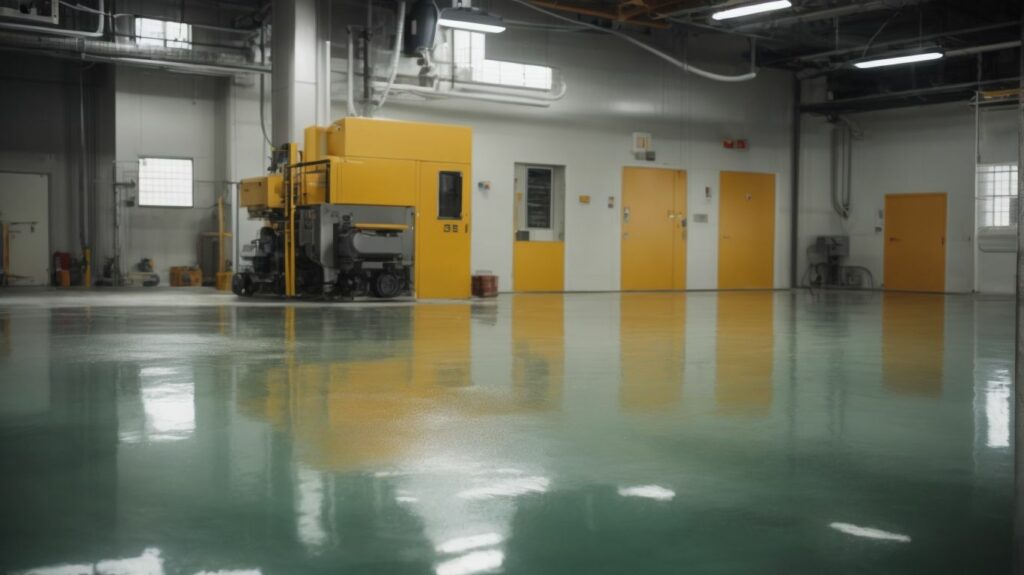
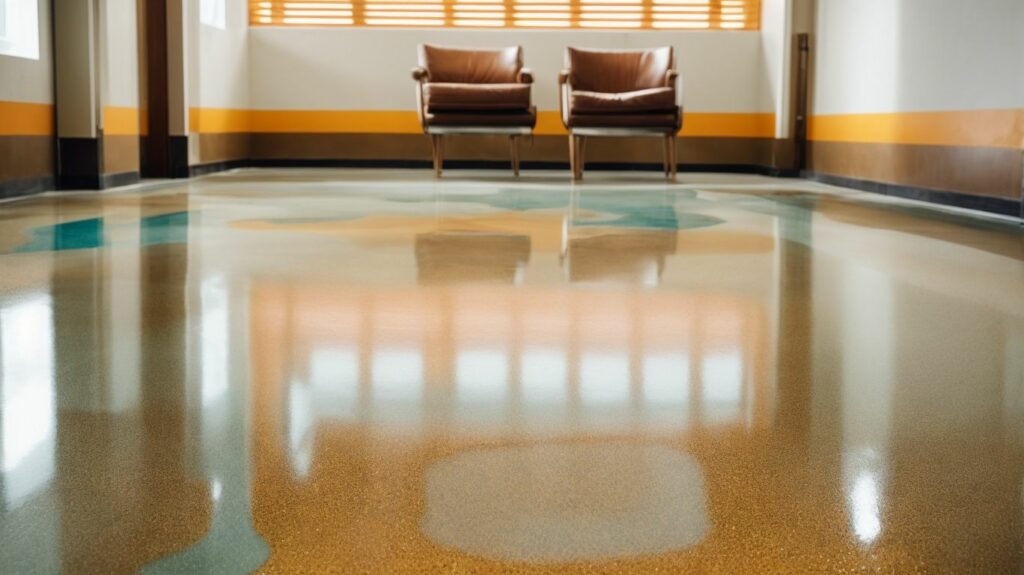
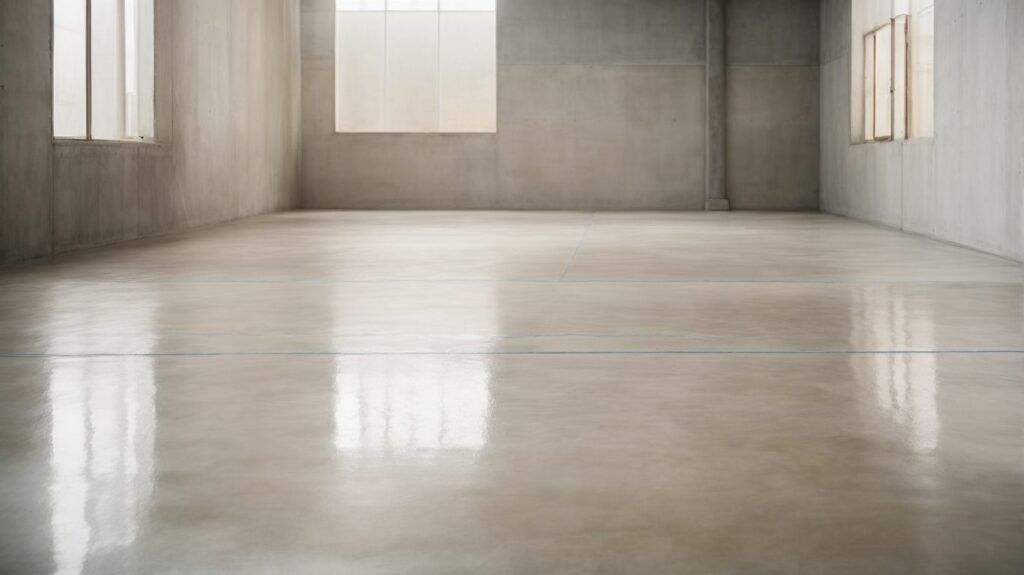


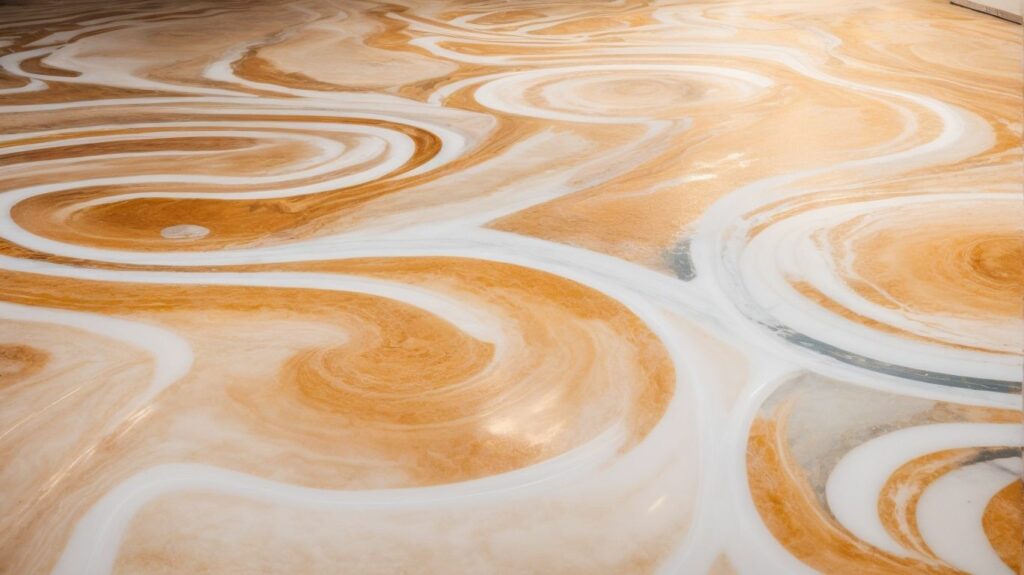

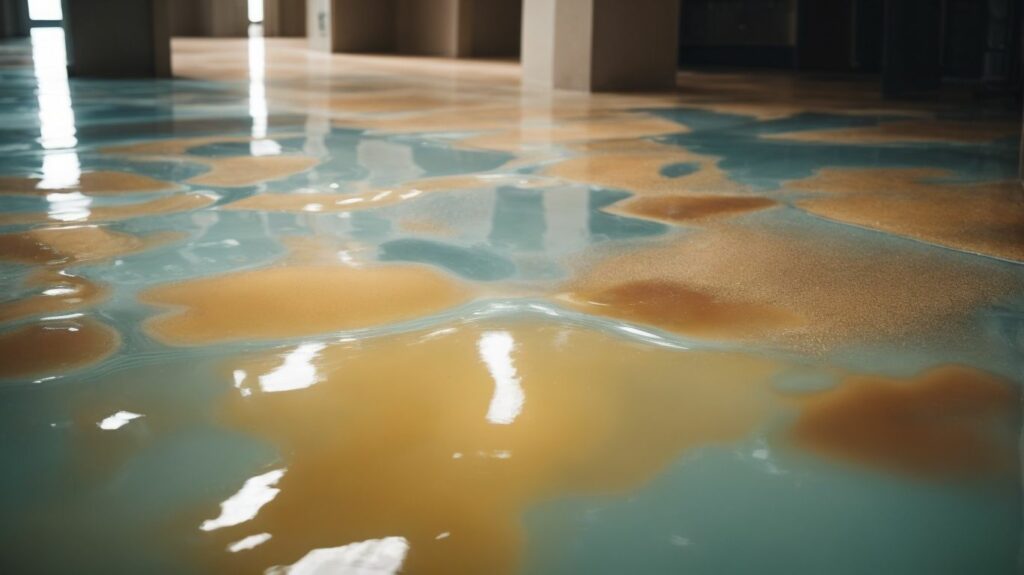
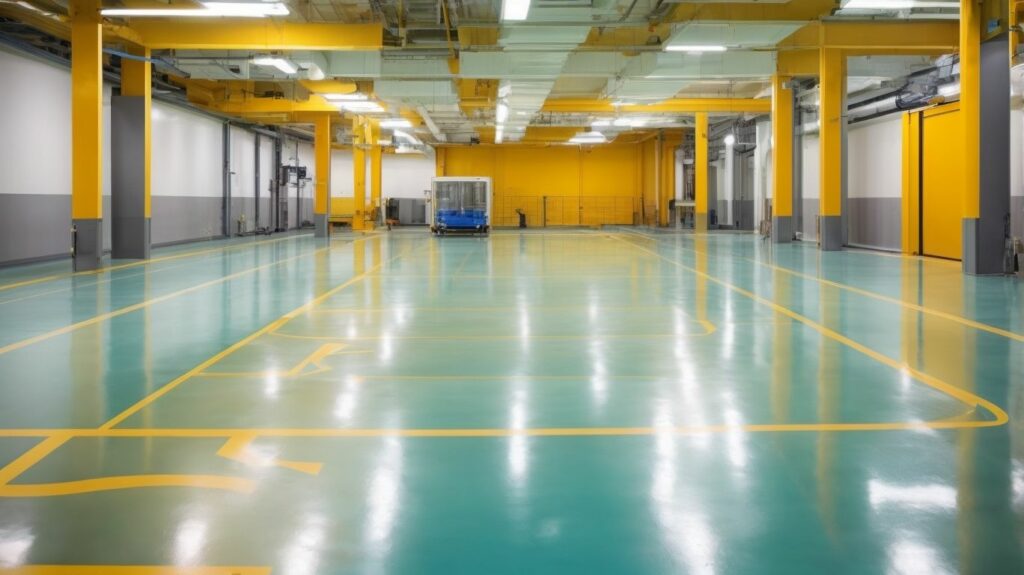
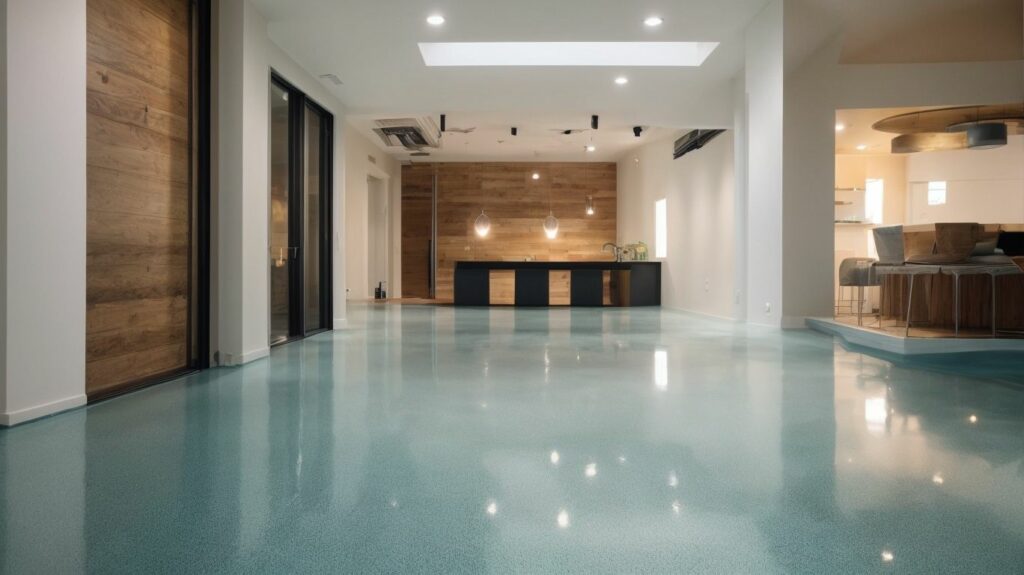

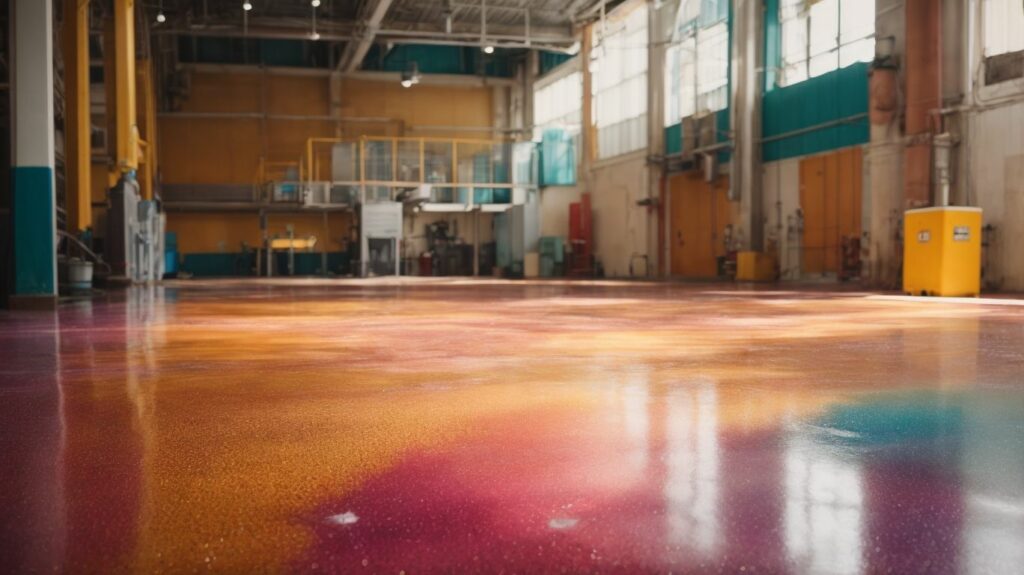
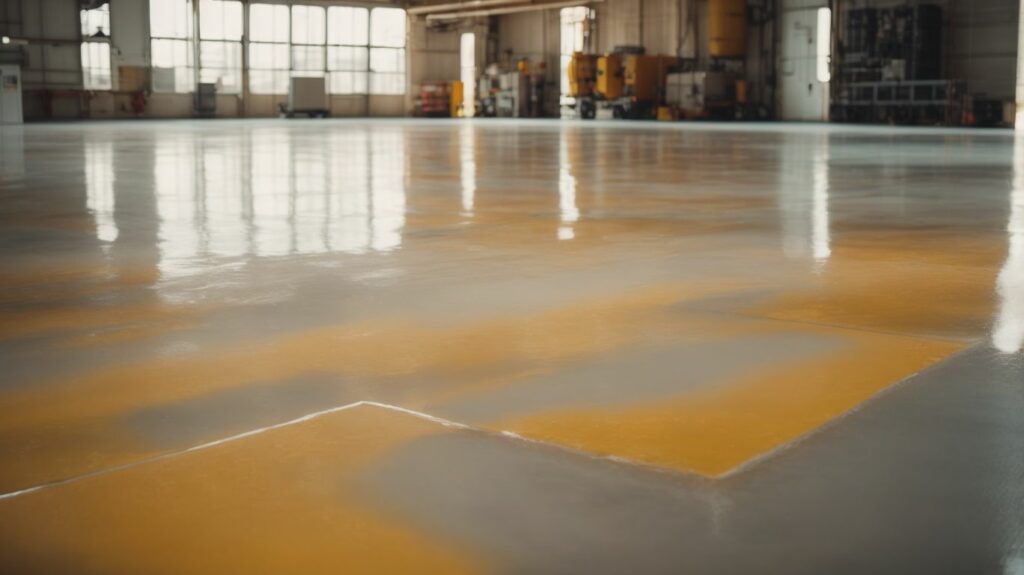
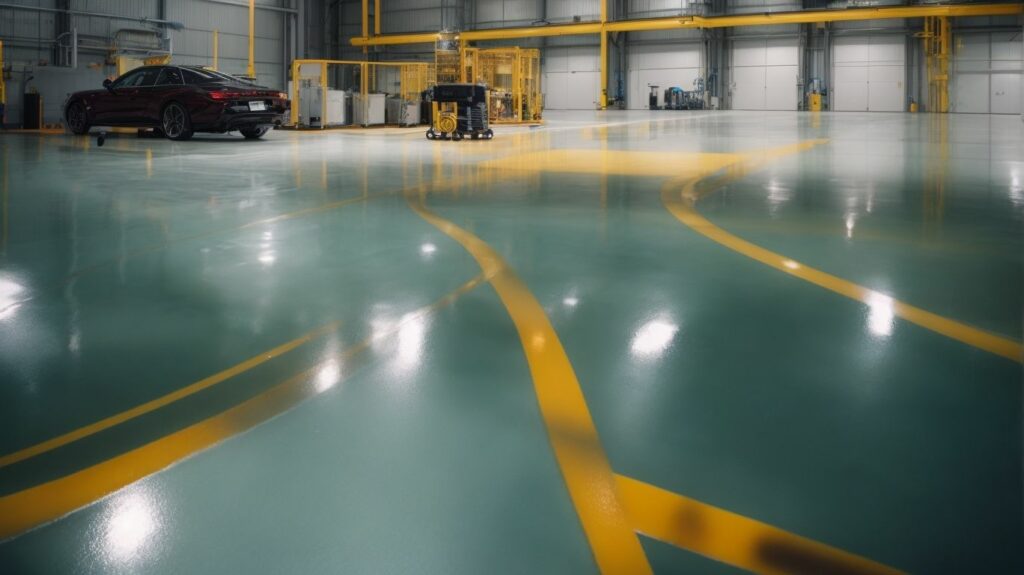

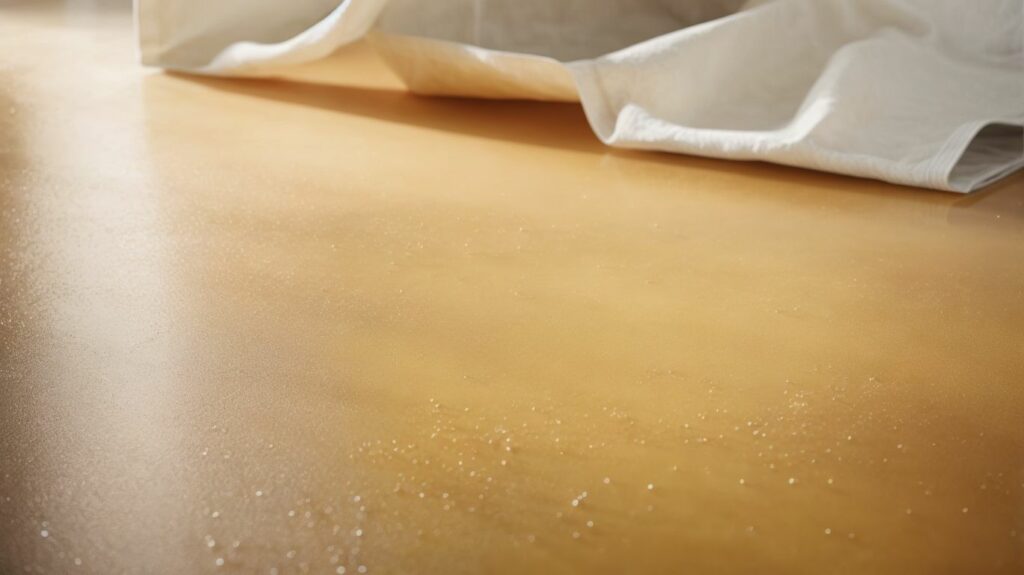
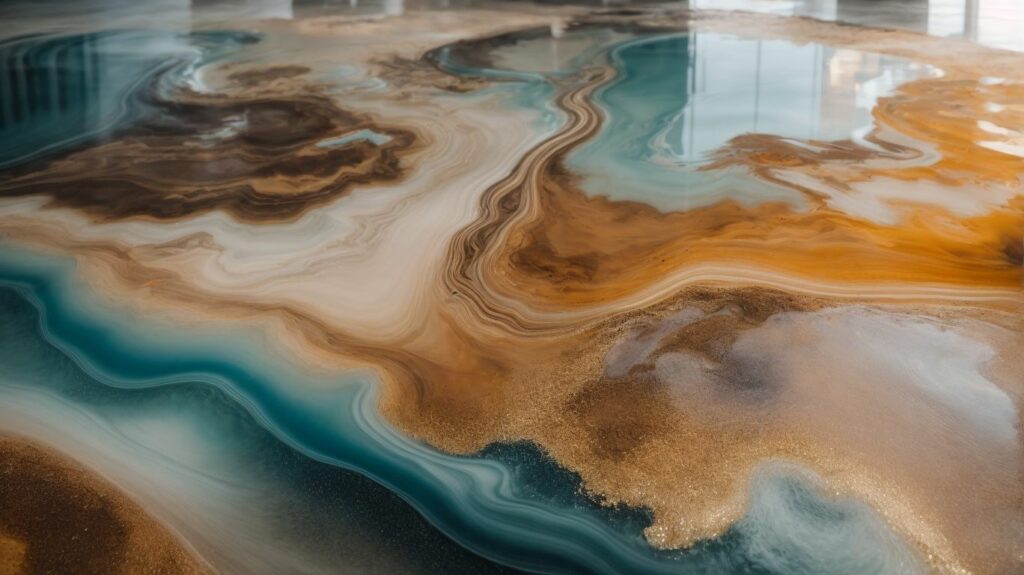
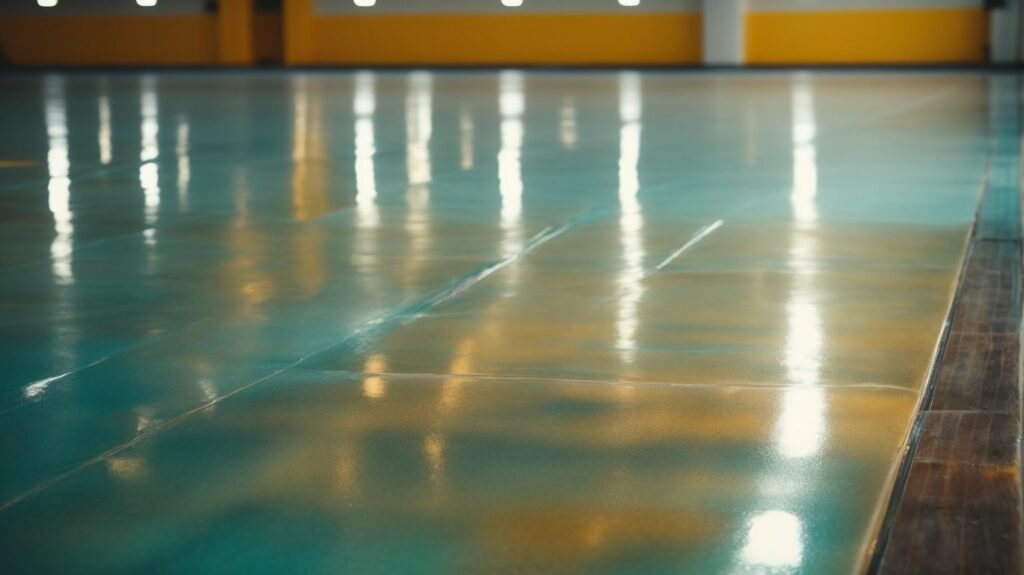

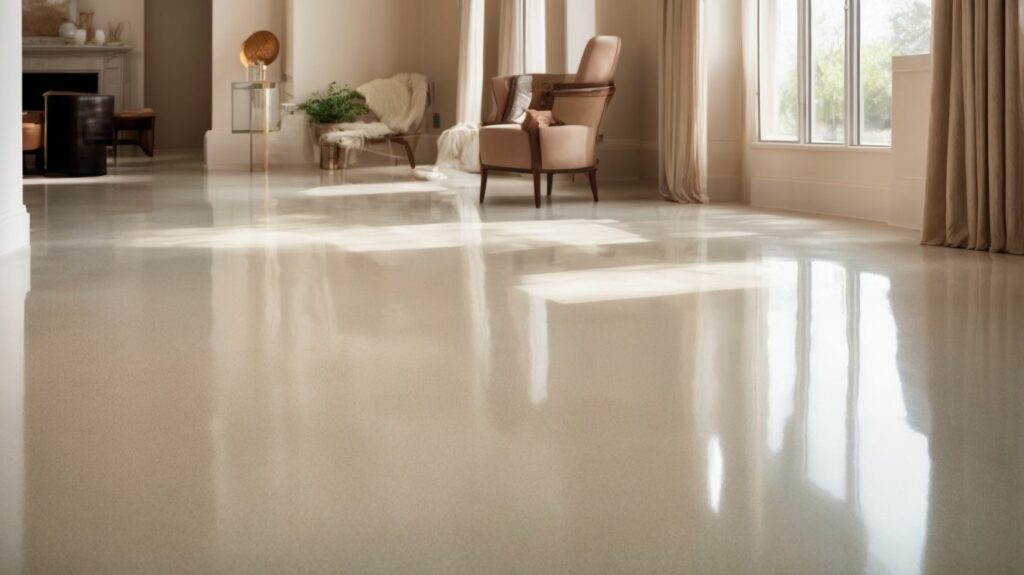
We Aim To Reply To All Enquiries With-in 24-Hours